SLU Professor Renounces Endowed Chair in Protest
Graphic by Ashlee Kothenbeutel
Last month, David Rapach, Ph.D, previously the John Simon Endowed Chair in Economics, renounced his chairship in protest of perceived violations of academic norms surrounding the $50-million-dollar donation to SLU in 2018 by billionaire philanthropists Rex and Jeanine Sinquefield. The donation funds the Sinquefield Center for Applied Economic Research (SCAER) and SLU Research Institute. In the memo announcing his resignation, Rapach wrote: “In light of the actions of certain members of the Department of Economics, senior leadership, and Board of Trustees at SLU, I cannot in good conscience continue to serve as the Simon Chair.”
Rapach’s decision to step down is the culmination of two years of sustained protest by himself and numerous other faculty, beginning almost immediately after the gift was made, over donation terms, which, in the view of Rapach, many of his colleagues cede far too much influence over faculty hiring and allocation of funds to Rex Sinquefield and thus compromise the integrity of the research at the SCAER and SLU Research Institute.
With ostensibly charitable large-scale gifts, such as the one funding the SCAER and SLU Research Institute, there are ethical procedures and guidelines that must be followed by university administrators to maintain academic integrity and intellectual freedom. For Rapach and numerous other faculty members, the administration has blatantly ignored these ethical procedures in its management of the gift, procedures which are well known and should be, at least in theory, uncontroversial.
The original stipulation of the Sinquefield gift granted Rex Sinquefield a role in the selection of the director of the SCAER, promoting an immediate backlash from faculty members who argued, rightly according to guidelines in SLU’s own faculty manual, that under no circumstances should a donor be involved in hiring decisions. In August 2018, Rapach and his colleague Bonnie WIlson Ph.D, an associate professor of Economics, sent a joint memo to President Pestello, then interim provost Michael Lewis, Ph.D, and the Sinquefields, pointing out that influence given to Sinquefield at any point in the faculty hiring process represented a gross violation of established academic norms. In addition, a petition signed by more than 50 professors circulated that called on the university to clarify that donors would have no influence over the hiring of faculty.
Sinquefield’s choice in Director was Michael Podgursky, Ph.D, who sits on the board of the Sinquefield-funded libertarian think tank, the “Show-Me Institute,” another red flag for those concerned that the SCAER might function as little more than a mouthpiece for Sinquefield’s political agenda, with the added benefits of institutional association.
Rapach, who runs an online “Academic Capture” page cataloging materials related to issues surrounding inappropriate donor influence in higher education, has written a detailed explanation of the events that followed this initial expression of outrage. Instead of taking steps to sever Sinquefield from involvement in the hiring process of faculty, something that the faculty manual expressly forbids, the administration decided to reclassify the faculty post as a staff post, circumventing the established procedure and flouting the academic norms that the procedure is meant to protect. When the change in title did not alleviate lingering faculty concerns over donor influence in hiring, the then dean of the business school, Mark Higgins, Ph.D, agreed to conduct a search committee for the position of Director of the SCAER in which Sinquefield would have no influence. The dean himself hand-picked a search committee for the position, Podgursky applied for the position and was then hired, defeating the entire purpose of forming a search committee to hire a director who was not the explicit choice of Sinquefield. Podgursky remains Director of the SCAER and retains his seat on the board of directors at the Show-Me Institute.
Beyond the undue influence Sinquefiled was granted in choosing the Director of the SCAER, the donation agreement also gave Sinquefield effective control over the dispersal of the funds for individual research projects associated with the SLU Research Institute. According to the Saint Louis University Research Institute, the funds from the Sinquefield gift that go towards the institute, of which the SCAER is a part, are not housed within SLU but rather in an external fund, the Sinquefield Center for Research Inc. (SCRI), a public charity that, according to Rapach, “affords maximal control to donors.” All research and grant proposals funded by the SCRI are subject to approval by a committee that includes Rex and Jeanne Sinquefield. Critics argue that under the current structure, the SCAER and SLU Research Institute benefit from the academic credibility afforded to it by its association with SLU without adhering to the norms that give academic work its integrity in the first place.
Rapach’s decision to relinquish the Simon Chair is the latest in a series of concerted efforts by a diverse array of faculty in protest of some of the perceived violations of academic norms discussed above. Whether or not the concerns outlined above will be addressed in the future remains to be seen. In a recent opinion piece entitled “Tainted Philanthropy in Higher Education,” Rapach and co-authors Samantha Parsons and Jasmine Banks enumerated a clear-cut programme that might serve as a guide going forward. included “placing the ultimate decision-making authority for accepting or rejecting any gift that does not go to the general fund in the hands of a review committee led by faculty” and “requiring that all research centers, institutes, or other affiliated entities be held to the same standards of academic freedom and peer review as other university programs.”
Rapach concluded the memo announcing his resignation with a message of hope: “While I am deeply troubled by the direction in which SLU is heading, I also believe that concerned stakeholders can act together to put SLU on a better path, so that it can truly live out its mission.”
Your donation will support the student journalists of Saint Louis University. Your contribution will help us cover our annual website hosting costs.
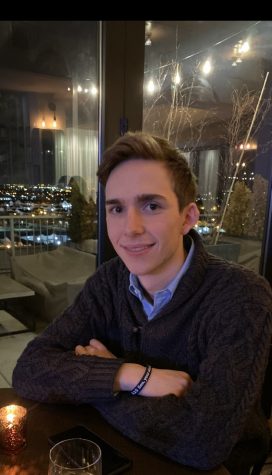




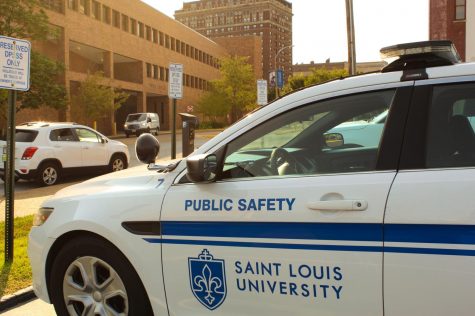
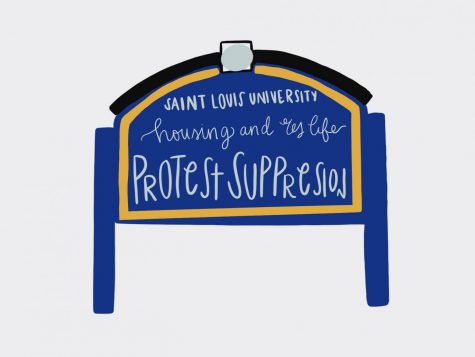
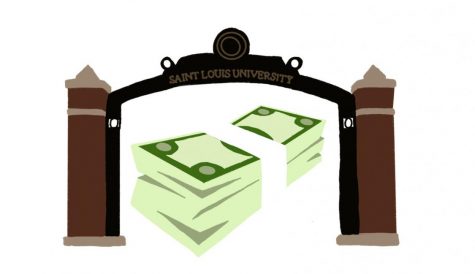

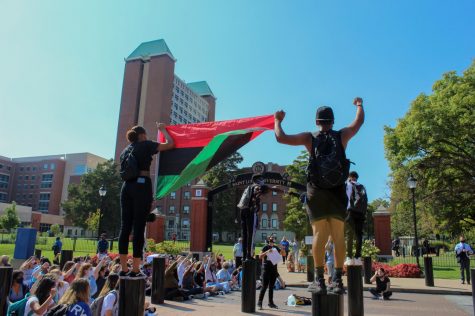
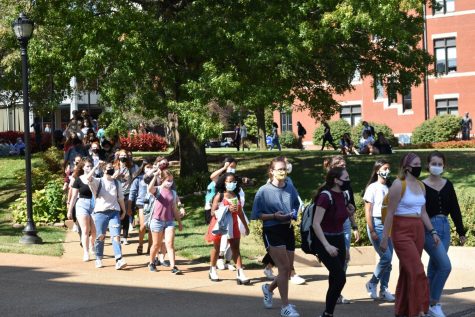
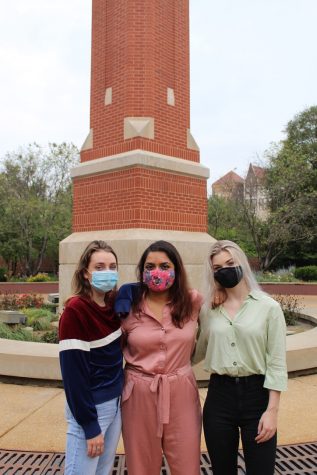
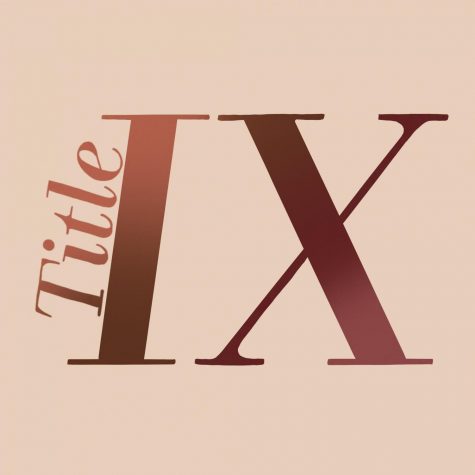
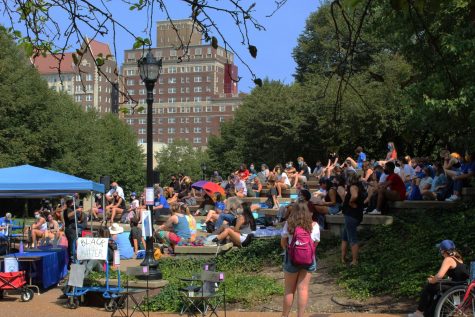
Sophie • May 9, 2020 at 10:12 pm
Thank you for bringing this to light on a campus wide scale. As a business student I am deeply concerned about the sway Rex and his money has. Especially given the fact that the Show Me Institute have previously tabled in the business school sharing rhetoric from their think tank and spreading misinformation. It’s frustrating that large donor gifts grant this much leeway to SLU values.